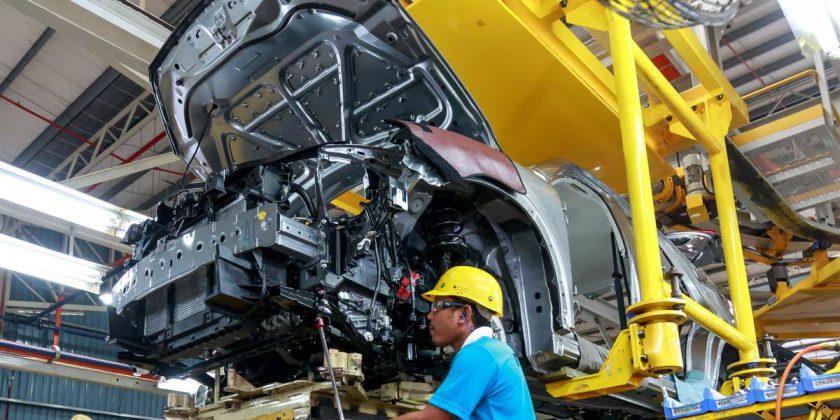The Malaysian Automotive Association (MAA) has said the hike in electricity tariff is the reason for the increase in car prices in the country. This was revealed at the association’s annual review press conference yesterday, along with sales data for the 2022 (and beyond).
On December 16 last year, the government, through the Energy Commission (EC), gave Tenaga Nasional the approval to continue implementing the Imbalance Cost Pass-Through (ICPT) mechanism for the period of Jan 1 to June 30, 2023. ICPT is a mechanism under the Incentive Based Regulation (IBR) framework which allows for Tenaga Nasional (TNB) to reflect changes in fuel and other energy generation-related costs in the electricity tariff.
These costs are set based on benchmarked prices in the base tariff, and the implementation of ICPT, which is reviewed every six months, would reflect the actual costs in tariff in from of rebate or surcharge. For example, if coal and/or gas prices go up, there’s a surcharge, and vice versa.
Prime minister Datuk Seri Anwar Ibrahim has said previously there would be no electricity tariff hike for households as well as small and medium-sized enterprises (SMEs). This was clearly reflected in the EC’s press release, whereby domestic users (Tariff A) would maintain a rebate of 2 sen/kWh. Meanwhile, non-domestic users under Tariff B and D (micro businesses, SMEs) as well as Tariff H, H1 and H2 (agriculture) would maintain a surcharge of 3.7 sen/kWh.
However, Anwar also said last month that multinational and large export-oriented companies would be subjected to an electricity price hike, as “the current tariffs are too low for them.” The EC, in its release, said the surcharge for users (low, medium and high voltage) among industry participants, including MNCs, will face a surcharge of 20 sen/kWh, up from the previous 3.7 sen/kWh. These electricity tariffs are effective from January 1 until June 30 this year.
The EC also stated in its release that during the July 1 to December 31 period in 2022, there was a spike in fuel and energy generation costs by RM16.2 billion, which would equate to an ICPT surcharge of 27 sen/kWh. With coal and natural gas making up over 90% of the electricity generated in the Peninsular, and the prices of these fuels going up, electricity generation costs have gone up by 74%.
Even with the new tariff for industrial users, the government is still footing a subsidy bill of RM1.93 billion, which when combined with the subsidies paid to maintain the tariff for domestic and smaller non-domestic users, amounts to RM10.76 billion in subsidies.
The revision of the electricity tariff for industrial users, which certainly includes carmakers, is the reason for the hike in car prices, although some brands have said they will maintain their pricing for now.
At yesterday’s event, Ravindran Kurusmary, president of UMW Toyota Motor (UMWT), said, “when (electricity) prices go up, we will take half (of the cost) and pass half to consumers. We will try as best as we can to hold (raising prices) as much as possible, but sometimes we have no choice, we have to pass (it on to consumers).” This was in response to a question posed to the panel, with Ravindran adding that the increase in electricity cost is around 15-18%.
Source: Read Full Article



